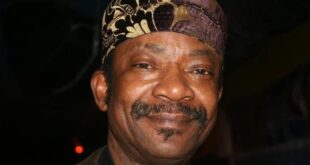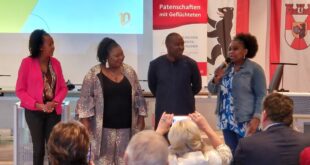Participants at the opening of the People of African Descent (PAD) Week Germany on Thursday in Berlin have been described as history makers.
For “never before have so many people of African origin gathered in the hallowed chambers of the Bundestag to not only talk about the challenges they face but also how to empower them,” Lord Simon Wolley remarked at the opening of the congress, which took place in the federal parliament in the German capital.
“Don’t you realize that you’re all history makers?” the director of Black Vote and a commissioner for race on the Equality and Human Rights Commission in the UK, asked. “Now clap for yourselves!”
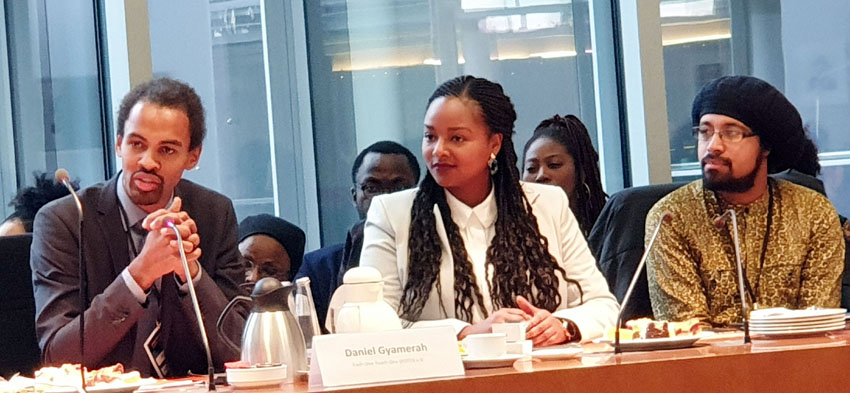
Lord Wolley, a political and equality activist in Europe, said he was proud of the historical moment as it brought the cause of Black people to the corridors of power in Germany for the first time.
“This event is a blank sheet and it’s now left for you to fill the sheet with history,” he remarked, calling for leadership in the Black community in the country.
“Critical to change is political power,” he told his audience. “When you have political power, you don’t ask, you make demands.”
He called on Black people to be active in the political process by voting at elections.
About 250 people came together for the event to press for more recognition of the challenges faced by Black people in Germany and for concrete actions to be taken by decision makers to address these challenges.
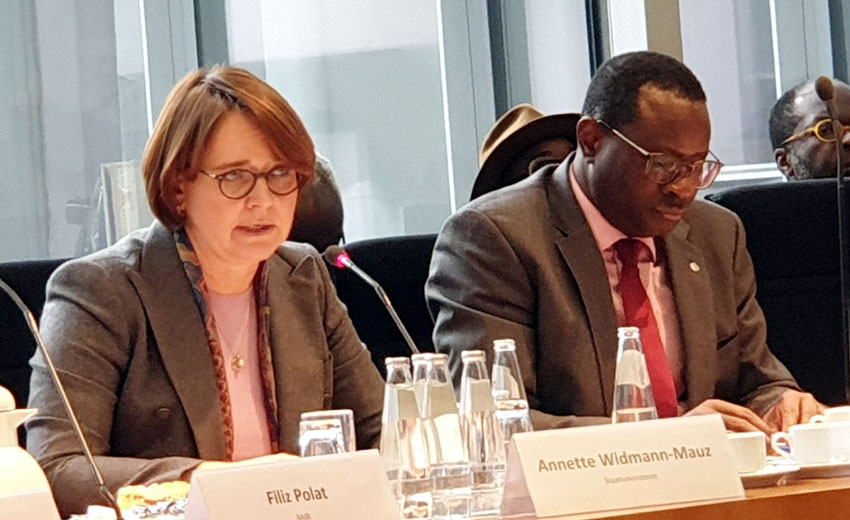
Organised by Each One Teach One (EOTO) e.V., a community-based education and empowerment project, PAD Week, holding from 28-30 November, also marks the third anniversary of the UN International Decade for People of African* origin in Germany.
Chief of the problems faced by People of African Descent in daily life is racism, which finds expression in different forms – inter-personal relations, schools, encounters with the police and other public officials and even at the doctor’s. Black people are not treated as they should.
READ ALSO Black People in Germany gather in Berlin for historic congress
In his opening comments, Daniel Gyamerah, chairman of EOTO, said more than 30 groups representing people of African descent in Germany put the Week together. He called attention to the fact that there’re about 1 million Black people in Germany, but they’re not recognized as a distinct group in public discourse and policy making.
“Anti-Black racism is a daily experience,” he said. “We need policies and measures that fight racism effectively.”
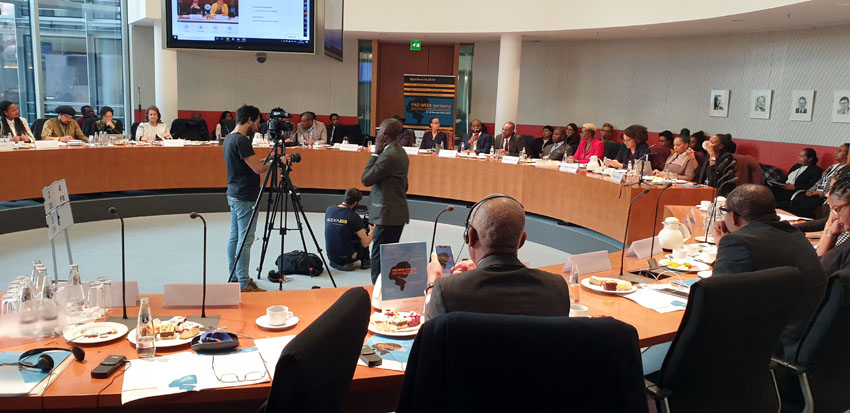
In his keynote address, Karamba Diaby, the Senegalese-born member of the Bundestag, said the PAD Week was a forum for exchanges among Black groups but also with the authorities on what has been achieved in the quest for more equality and what needs to be done to ensure that people of African descent enjoyed the rights due to them under the law, among which is the right to be treated without discrimination.
“Black people must be recognized as a distinct group suffering from racism and discrimination,” Diaby, who is also the SPD’s spokesman on integration, added.
In her speech, Annette Widmann-Mauz, Federal Commissioner for Migration, Refugees and Integration, said the constitutional provisions forbidding discrimination on the basis of ethnicity, religious belief or sexual orientation must be a lived reality for all citizens.
“What is important is that the Decade is being marked, Mrs Widmann-Mauz, who is also a member of the Bundestag, remarked. “Germany recognizes the Decade and it’s obliged to its objectives,” the Commissioner said. She added that PAD Week provided a unique opportunity to put issues of racism and discrimination against Black people at the centre of public discussions.
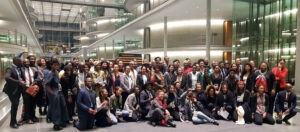
Widmann-Mauz also talked about Germany’s National Action Plan against Racism, launched in 2017, and which seeks to address issues of inequality and discrimination in the country and the efforts of government to pursue its objectives.
Filiz Polat, spokesperson of the Greens on integration in the Bundestag, said the event was historic in the sense that it’s the first time that federal parliament would deal with the Decade since it’s launched.
The MP bemoaned the fact that there’s no critical dialogue taking place on racism even though the issue of right-wing extremism is very much publicly discussed. “It’s important that racism is more openly and directly discussed in the Bundestag.”
She called on the German government to use its diplomatic influence to push for a Europe-wide visibility of the Decade during its EU Presidency next year.
Aminatta Touré, deputy president of the state parliament of Schleswig Holstein, called on the federal government as a signatory to the Decade to ensure that it’s implemented. She also called for a stronger commitment against anti-Black racism through measures and policies, such as reprocessing of colonial history in school lessons and the promotion of Black projects.
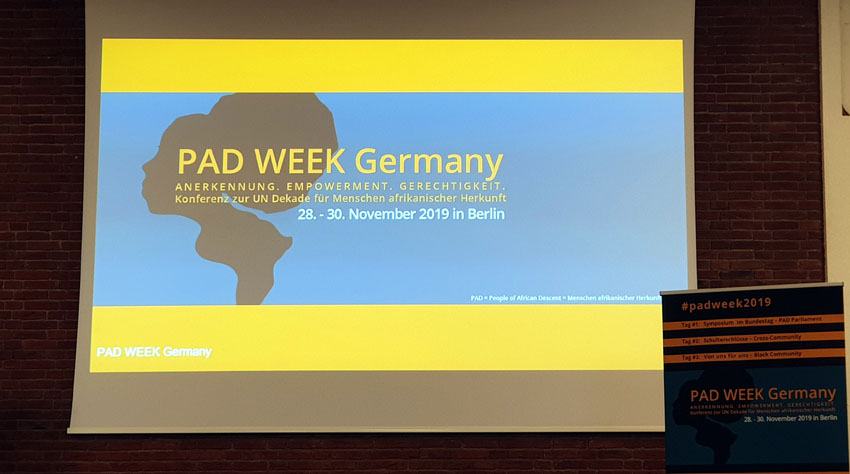
Elizabeth Kaneza, the Decade’s Fellow for Germany, said the recognition of Black people and their contributions to society were important for them to be accepted as equal members of society. She called for a national plan to implement the objectives of the Decade.
READ ALSO Black people in Germany tell United Nations their pains
Among other speakers at the opening ceremony were Alfiaz Vaiya, Coordinator of the European Parliament Anti-Racism and Diversity Inter-group; Moctar Bah of the Oury Jalloh Initiative; Jeff Kwasi Klein of EOTO; Joshua Kwesi Aikins, anti-racism researcher; Michael AlliMadi, founding member of the Association of Elected Officials of African Descent in Germany; Ms. Mireille Fanon Mendes-France, former member of the UN Working Group of Experts on People of African Descent; Dr Manuela Bauche of the Free University of Berlin; and Yonas Endrias of the Black Academy Berlin.
The 3-day event, featuring lectures, panel discussions, workshops and a cultural programme, ends on Saturday.
Femi Awoniyi
More reports coming…
——————————–
*The International Decade for People of African Descent, 2015–2024, was proclaimed by the UN General Assembly and adopted on 23 December 2013. The theme of the Decade is “People of African descent: recognition, justice and development”. The Decade highlights the human rights situation of the African diaspora worldwide and aims to fight racial discrimination and create visibility for the contribution of people of African descent in the societies they live in. The Decade was officially launched in Germany in June 2016 in Berlin.
 THE AFRICAN COURIER. Reporting Africa and its Diaspora! The African Courier is an international magazine published in Germany to report on Africa and the Diaspora African experience. The first issue of the bimonthly magazine appeared on the newsstands on 15 February 1998. The African Courier is a communication forum for European-African political, economic and cultural exchanges, and a voice for Africa in Europe.
THE AFRICAN COURIER. Reporting Africa and its Diaspora! The African Courier is an international magazine published in Germany to report on Africa and the Diaspora African experience. The first issue of the bimonthly magazine appeared on the newsstands on 15 February 1998. The African Courier is a communication forum for European-African political, economic and cultural exchanges, and a voice for Africa in Europe.












